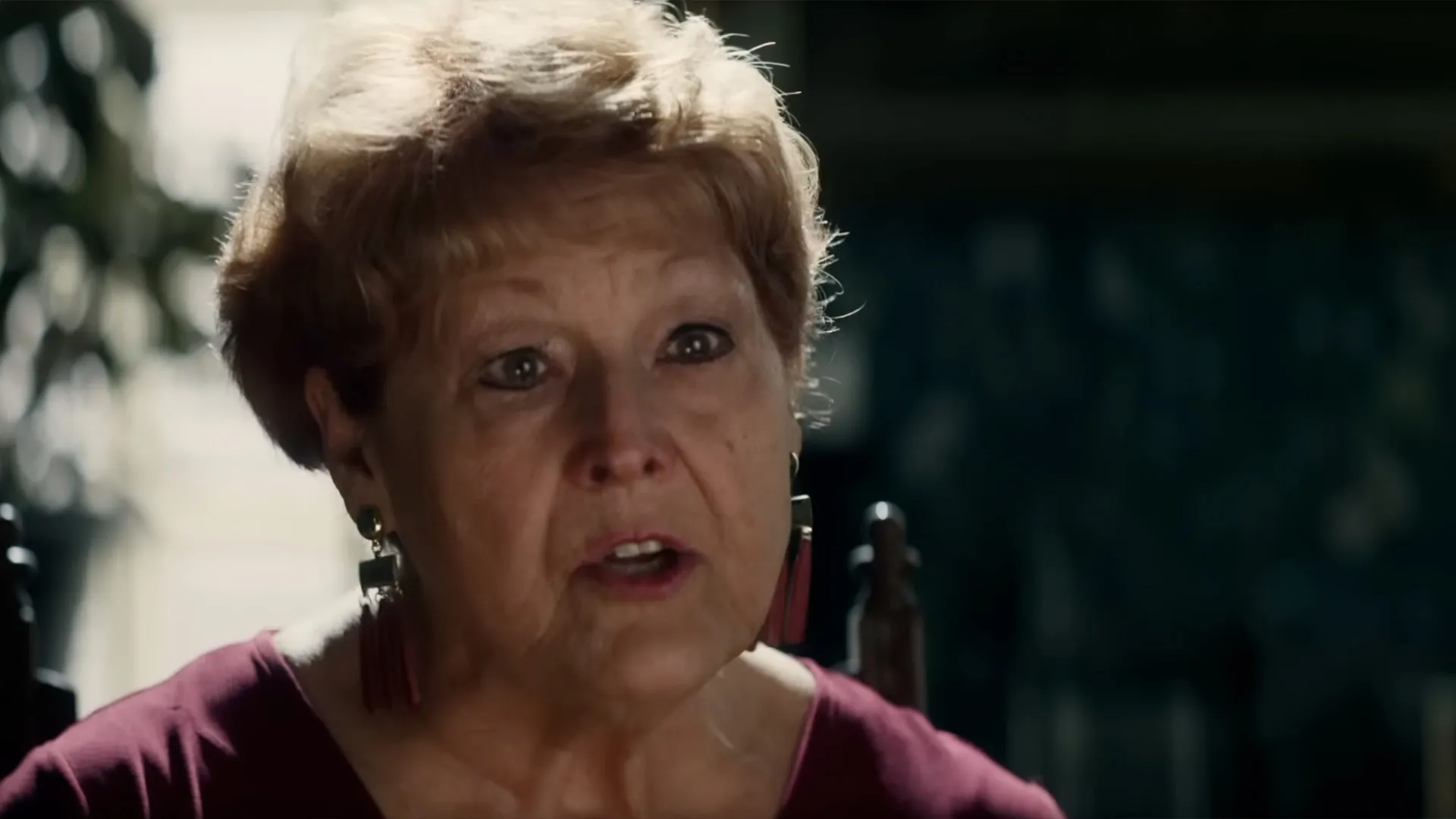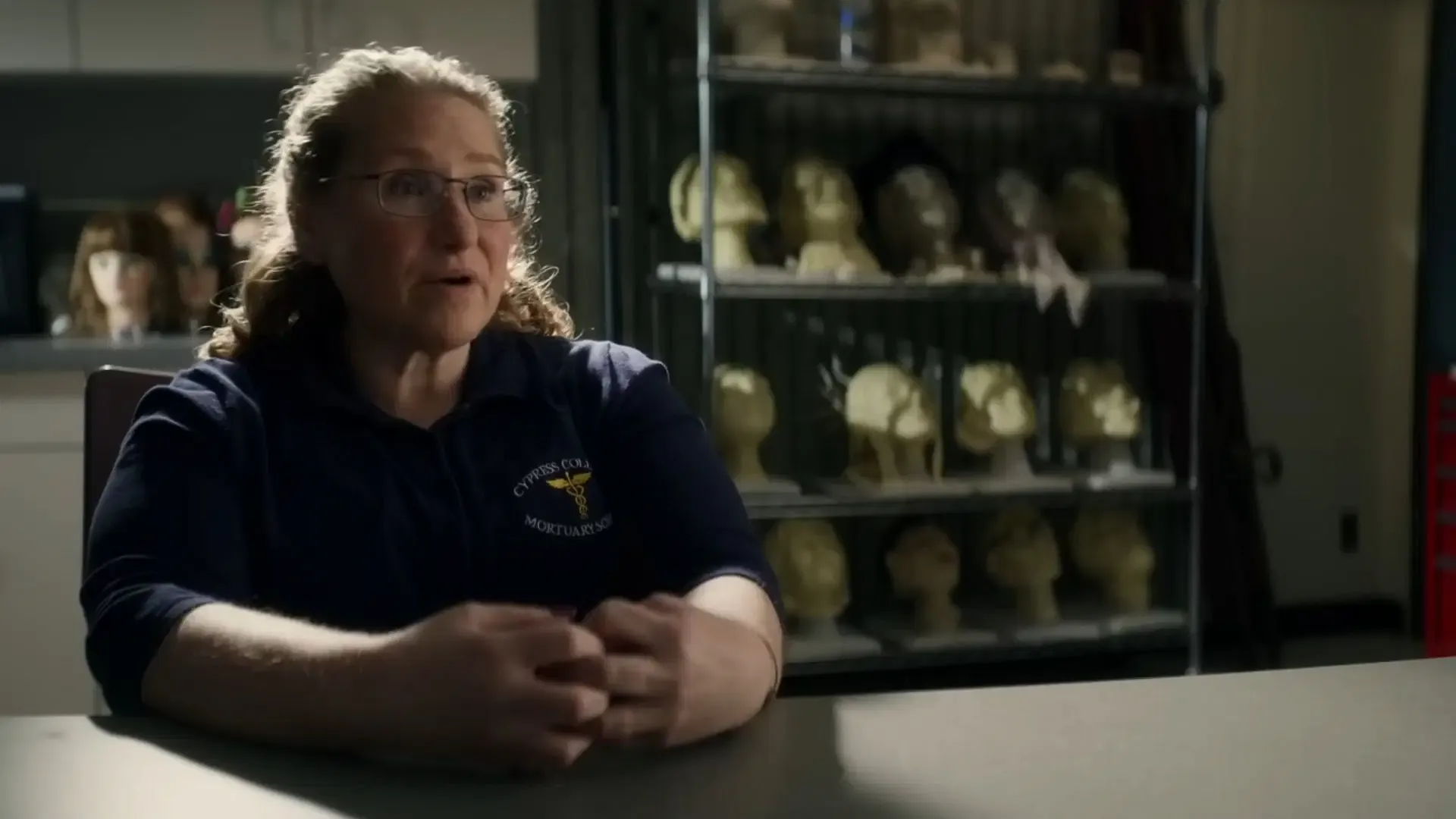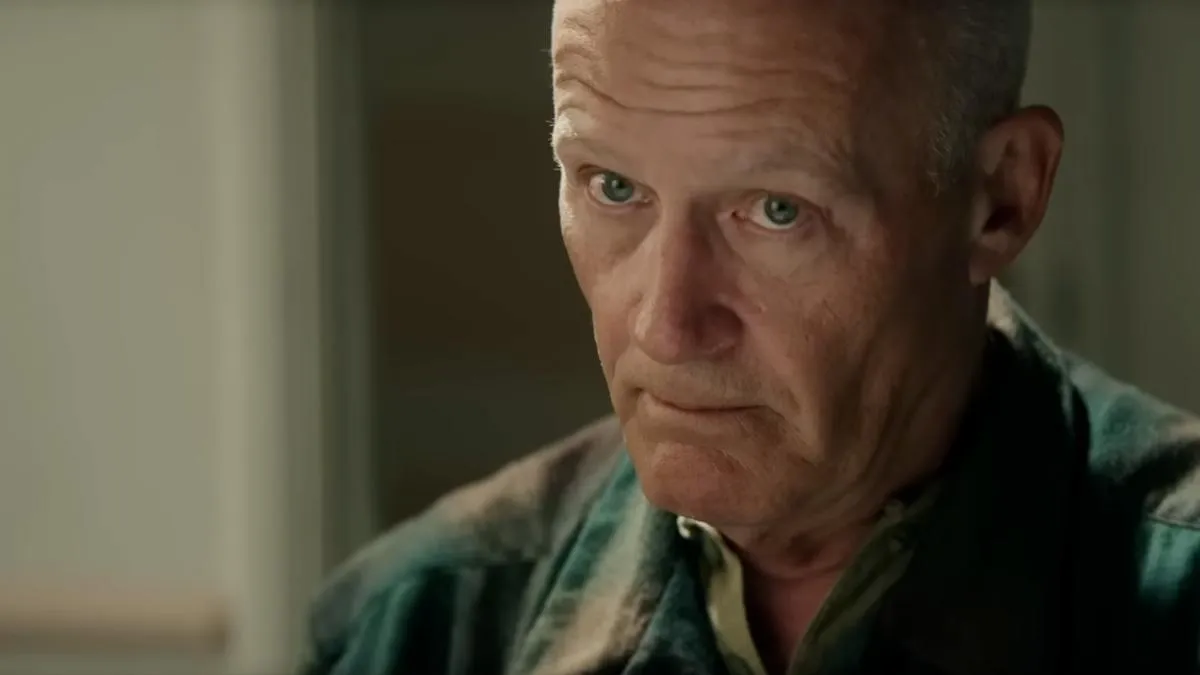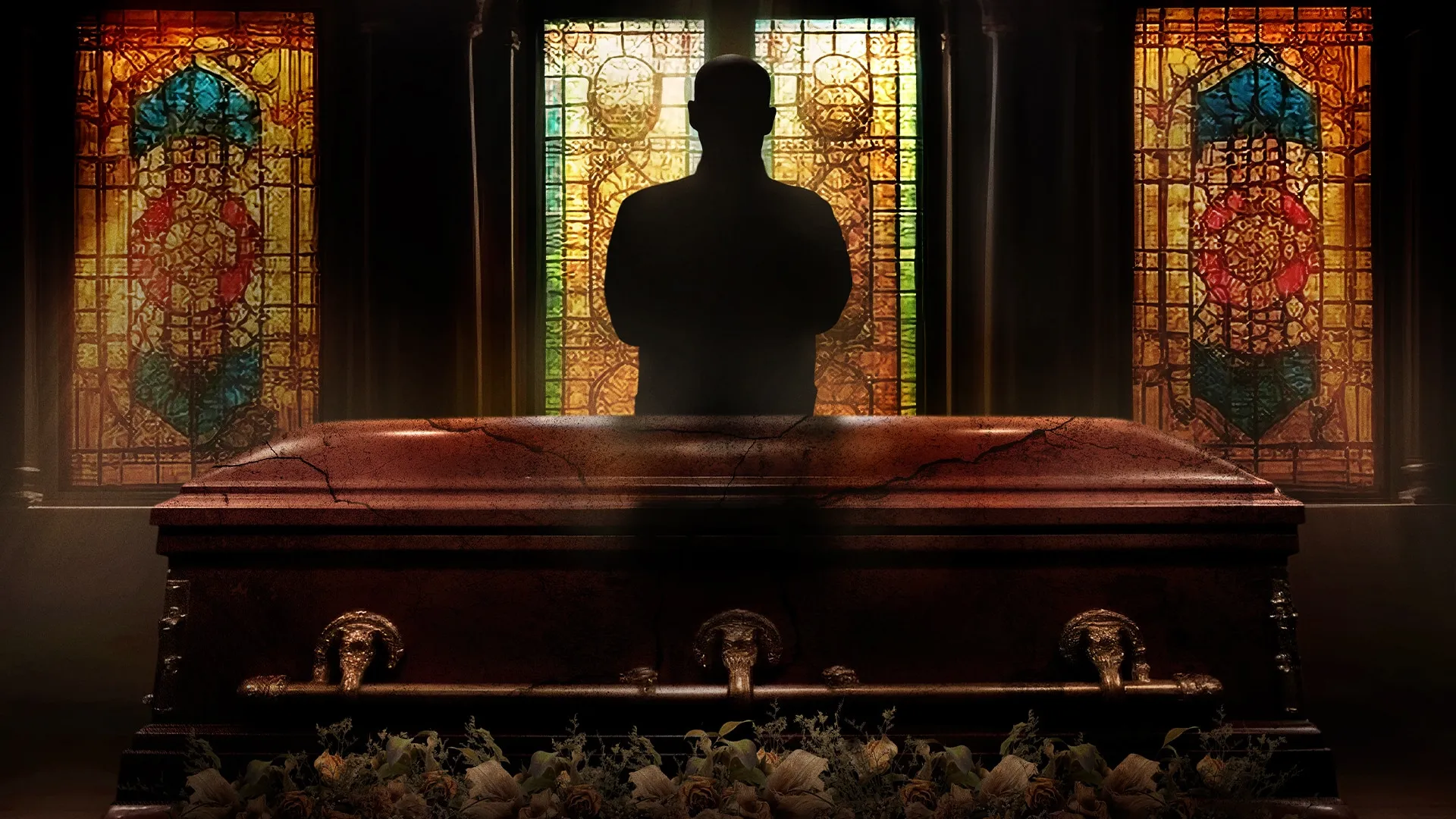HBO’s docuseries, “The Mortician Season 1,” excavates the chilling true story of the Lamb Funeral Home in 1980s Pasadena, California, a name that became synonymous with an almost unimaginable betrayal of trust. This is not a comforting historical piece; it is an investigative plunge into the disturbing practices that festered within a family-run mortuary, establishing from its outset an atmosphere thick with unease.
The series fixes its unflinching gaze primarily upon David Sconce, the scion who inherited the family business and proceeded to implement methods driven by a pursuit of profit so extreme they defy common decency. Viewers are thus prepared for a grim recounting, one that promises to lay bare a litany of morally repugnant and inhumane activities, all under the guise of providing final respects, painting a stark picture of commerce corrupting care during life’s most vulnerable moments.
The Mortician’s Mind: Portrait of an American Profiteer
At the heart of “The Mortician” festers the unsettling enigma of David Sconce, a figure whose journey from potential athlete to the maestro of a macabre enterprise forms the series’ chilling core.
Born into the Lamb family’s long-established funeral home dynasty, Sconce’s pivot to the mortuary, specifically overseeing cremations, set the stage for a particularly American brand of horror, where entrepreneurial spirit curdled into exploitation. The docuseries meticulously presents his ascent not as a sudden heel turn, but perhaps as the grim flourishing of a pre-existing worldview when given opportunity and power.
The series gains its most potent and disturbing insights from Sconce’s own mouth, primarily through interviews conducted following his 2023 prison release. Here, the modern true-crime trope of the unrepentant subject is on full display, yet Sconce’s articulation of his philosophy transcends simple denial.
He posits that the deceased are merely “shells,” devoid of personhood, a chilling detachment that fuels his justifications for practices like mass cremations as mere “business decisions” or unfortunate operational necessities. The series doesn’t shy away from his profound lack of remorse, letting his statement, “I don’t put any value on anybody after they’re gone and dead,” echo as a thesis for his entire operation.
This framing offers a stark commentary on a societal segment where empathy is an externality in the calculus of profit. His apparent inability to grasp the sanctity families invest in remains, or the profound emotional violence inflicted, paints a portrait of reasoning so detached it edges into the sociopathic, forcing viewers to confront a mindset that sees human grief as an irrelevance in the face of commerce.
The Industrialization of Indignity: Lamb Funeral Home’s Catalogue of Contempt
“The Mortician” meticulously catalogues the operational horrors under David Sconce, transforming the Lamb Funeral Home from a place of solace into a chilling tableau of industrial-scale desecration. The series unpacks how Sconce’s “innovative” business model—offering cut-rate cremations that dramatically swelled his intake to physically impossible numbers, reportedly soaring to over 25,000 bodies annually with just two furnaces—was predicated on a grotesque disregard for human dignity.
This wasn’t merely corner-cutting; it was a systematic pulverization of ethical and emotional boundaries. Viewers learn of bodies being physically broken to cram them into ovens, a horrifying metaphor for the shattering of communal trust, and the inevitable commingling of ashes, a practice Sconce himself attempts to normalize, thereby robbing thousands of families of genuine closure and the singular remains of their loved ones.
The depravity, however, did not end with the efficient processing of remains. The series details a ghoulish treasure hunt, where corpses were systematically plundered for gold teeth and wedding rings—a clothes hanger reportedly festooned with the latter serving as a potent, sickening image of this avarice.
Whispers of black market organ harvesting add an even more sinister layer, pushing the narrative beyond mere greed into the realm of unthinkable violation. Furthermore, “The Mortician” explores how this macabre enterprise protected itself, detailing allegations of intimidation and violence against rival funeral directors who dared question Sconce’s methods.
The suspicious, premature deaths of investigator Tim Waters and employee Ron Jordan cast long, dark shadows, hinting at a ruthlessness extending far beyond the crematorium walls. Perhaps most unsettling is the thread of familial complicity, with Sconce’s claim that these practices were “learned through generations.”
The alleged involvement of his mother, Laurieann, meticulously rationing anonymous ashes, challenges any simple “rogue operator” narrative, suggesting instead a deeper, more insidious rot within a business that traded on public faith.
Sculpting the Macabre: Narrative and Atmosphere in “The Mortician”
Director Joshua Rofé constructs “The Mortician” with a deliberate, almost clinical precision that amplifies its horrifying subject matter. The narrative backbone is undeniably the extensive interview with David Sconce, captured fresh from a decade in prison.
This choice, a familiar gambit in contemporary true crime, grants Sconce ample space to articulate his chilling worldview, allowing his justifications and apparent lack of empathy to shape the viewer’s understanding, or profound misunderstanding, of his character.
Yet, Rofé skillfully counterbalances this dominant voice with a chorus of others: former employees, some cloaked in anonymity, providing crucial insider details; the raw anguish of victims’ families; the frustrated accounts of rival morticians and law enforcement; and the reflections of Sconce’s ex-wife. This polyphonic approach prevents the series from becoming solely Sconce’s platform, instead weaving a richer, more damning tapestry.
Visually and aurally, the series leans into a “noirish” sensibility, employing a dark, foreboding style that permeates every frame. Archival footage of 1980s Pasadena—sun-bleached highways giving way to shadowy crematoria—is blended with what are described as artfully constructed recreations, aiming for a seamless dread.
The musical score, particularly the reportedly “blaringly ominous” tones accompanying Sconce’s release, underscores the series’ grim trajectory. Structurally, the three-part organization allows for a gradual unfurling of the scandal’s depth, though questions might arise whether the material fully sustains this length without occasional repetition, a common tension in the streaming era’s serialized documentaries.
Rofé’s directorial hand is apparent in the cultivation of a “creepy and ghoulish” mood, and his interview technique with Sconce seems less about direct confrontation and more about providing the rope with which Sconce methodically hangs his own credibility.
Fractured Faith: The Lingering Wounds and Systemic Shadows
“The Mortician” extends its inquiry beyond the grotesque mechanics of David Sconce’s operation to probe the profound human cost and unsettling societal questions his actions unearth. The docuseries gives vital space to the victims’ families, whose testimonies of emotional trauma and betrayal form a heartbreaking counter-narrative to Sconce’s detachment.
Their search for accountability underscores the deep violation of trust inherent when a funeral home, a presumed sanctuary in times of vulnerability, becomes a site of desecration. This portrayal serves as a stark reminder of the sanctity individuals attribute to remains and the enduring pain caused when that sanctity is so callously violated.
Beyond individual grief, the Sconce scandal, as depicted, rips the respectable shroud from the American funeral industry, exposing its historical development as a profit-driven enterprise and its potential for exploitation. While the series briefly touches upon how such outrages might have spurred stricter protocols, it more pointedly raises the uncomfortable tension between commerce and compassionate care in the “death business.”
This invites a broader critique, prompting viewers to consider whether the “unfettered late-stage capitalism” of the era, as one review termed it, fostered an environment where such depravity could flourish, or if Sconce was an anomaly of individual moral collapse. The series implicitly questions how seemingly ordinary individuals can perpetrate such unthinkable acts and probes the adequacy of the legal repercussions, leaving a disquieting sense about the true weight of justice in the face of such profound ethical breaches.
The Unquiet Grave: “The Mortician’s” Enduring Discomfort
“The Mortician” undeniably succeeds in presenting a comprehensive and profoundly disturbing account of the Lamb Funeral Home scandal, its effectiveness amplified by the chilling access to David Sconce himself. The series masterfully conveys the gravity of his actions and the unnerving depth of his indifference, largely by allowing his own words to paint the portrait of a man seemingly devoid of conventional empathy.
Consequently, the lasting impression is one of deep unease rather than neat resolution; the narrative intentionally leaves the audience grappling with unsettling questions about human nature, familial complicity, and the vulnerability of societal trusts.
More than a mere chronicle of shocking deeds, “The Mortician” contributes to the true crime genre by leveraging its grim particulars to probe systemic failings within an industry and the darker capabilities of the human psyche. The unvarnished power of Sconce’s testimony ultimately shapes the viewer’s perception, making the series a potent, if deeply uncomfortable, exploration of morality’s commodification.
The Mortician premiered on HBO on June 1, 2025, with episodes airing weekly. It is also available for streaming on Max.
Full Credits
Director: Joshua Rofé
Writers: Joshua Rofé
Producers and Executive Producers: Joshua Rofé, Jonah Hill, Steven J. Berger, Matt Dines, Nancy Abraham, Lisa Heller, Tina Nguyen, M. Elizabeth Hughes, Alison Goodwin
Cast: David Sconce, Barbara Hunt, Jolena Grande, Jay Brown, Elie Estephan, Ashley Dunn, David Geary
Director of Photography (Cinematographer): Ronan Killeen
Editors: Morgan Hanner, Azin Samari, Caitlyn Hynes
Composers: Daniel Pemberton, Adem Ilhan
The Review
The Mortician Season 1
A chillingly effective and deeply unsettling docuseries, "The Mortician" masterfully dissects a horrifying true story of greed and desecration. Anchored by the remorseless testimony of David Sconce, it forces a hard look at the commodification of grief and systemic vulnerabilities. While its unflinching gaze can be profoundly disturbing, its power to provoke thought on ethical boundaries and human depravity is undeniable, making it a significant, if grim, contribution to true crime.
PROS
- Unflinching, comprehensive portrayal of a disturbing true story.
- Compelling and central interviews with the unrepentant David Sconce.
- Successfully raises critical questions about industry ethics, trust, and human behavior.
- Skillfully crafted dark and unsettling atmosphere that enhances the narrative.
CONS
- The extremely disturbing nature of the content may not be suitable for all viewers.
- Potential for some viewers to find the pacing slow or the runtime stretched across three parts.
- The prominent platform given to Sconce, while central, might be ethically challenging for some.




















































